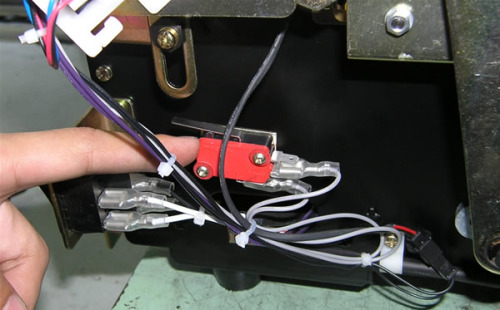The development of sensors has entered the office
 As “big data†has gradually become a part of office life, companies are turning to tracking devices to collect real-time data on the work and interaction of the team of employees. Sensors are often built into badges or placed on office furniture. They record the frequency of employees standing up from desks, consulting other teams, and holding meetings.
As “big data†has gradually become a part of office life, companies are turning to tracking devices to collect real-time data on the work and interaction of the team of employees. Sensors are often built into badges or placed on office furniture. They record the frequency of employees standing up from desks, consulting other teams, and holding meetings. Companies stated that those data have brought with them insights about the work of employees that are difficult to obtain from other sources. In order to promote collaboration and increase employee productivity, they are using information to make large and small changes, from determining breaks to organizing work teams. Sensors measure actual behavior in an objective manner.
However, at least in the eyes of some employees, companies must take a good measure, because there is a subtle demarcation line between "big data" and "dictator", and employees are horrified to think that every move by their bosses will follow. However, sensor supporters point out that smartphones and corporate ID badges have been able to transmit the owner's location. In many cases, employees may choose not to participate in sensor surveys. Collecting big data about people's behavior is a very sensitive topic. In addition to dealing with privacy issues, companies must also be prepared to mine and analyze those data.
Cubist also found a relationship between high productivity and face-to-face interaction. It found that the social activities of employees at lunch time dropped significantly because many people returned to their desks to check their emails instead of chatting with other people. As a response, the company decided to make the restaurant more attractive, improve its lighting and food, to encourage employees to eat together at noon, rather than sitting at their desk to eat. Cubist also narrowed the coffee shop in the sales and marketing department, prompting employees to squeeze into a group. It also sets a daily rest time of 3 pm in order to boost employee spirit and promote their social interaction.
Personal data is inspiring. It is possible to infer from the mobility pattern of an employee that he is likely to leave or advance in the future. Sensor surveys often show that the company's fine-tuning of management can improve operations more than radical changes. The data collected by the sensors shows that the larger the company's table, the more active the social interaction between the various departments.
Lewis Maltby, president of the American Institute of Work Equity, pointed out that current sensor technology does not violate the employment law. “It is not illegal for companies to track employees in their own office buildings. The data helps improve the performance of companies and employees.†But he warned that employers are likely to want personal data from their employees.
Sensors can also reveal how employees use the office space. The researchers pointed out that letting employees wear badges is just the beginning of a broader trend. Businesses are tending to re-imagine their offices, many of which are researching “smart buildingsâ€, which are equipped with real-time technology that shows the location of employees and prompts them to meet nearby.
Linux Pc For Iot,Iot Industrial Computer,Iot Industrial Pc,Linux Industrial Pc
Shenzhen Innovative Cloud Computer Co., Ltd. , https://www.xcycomputer.com